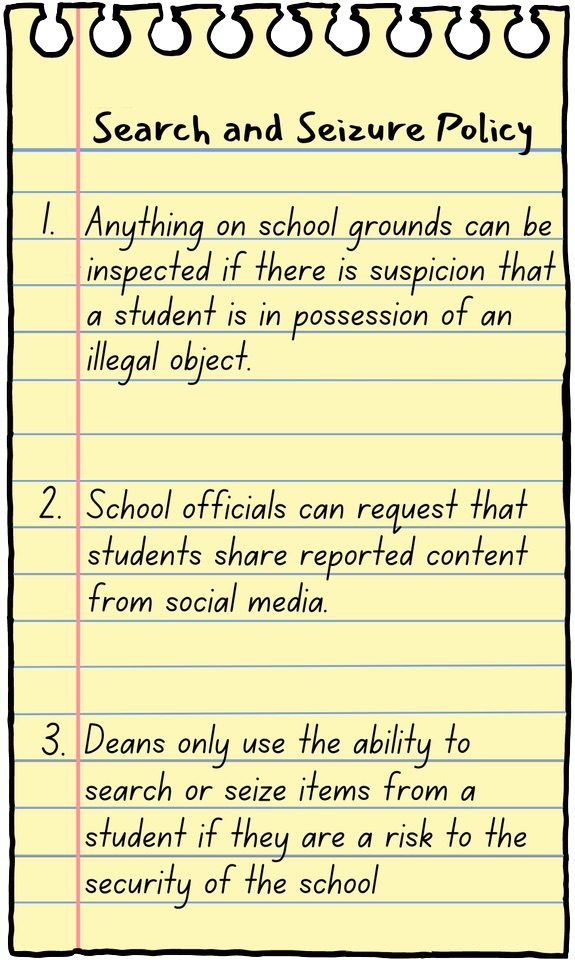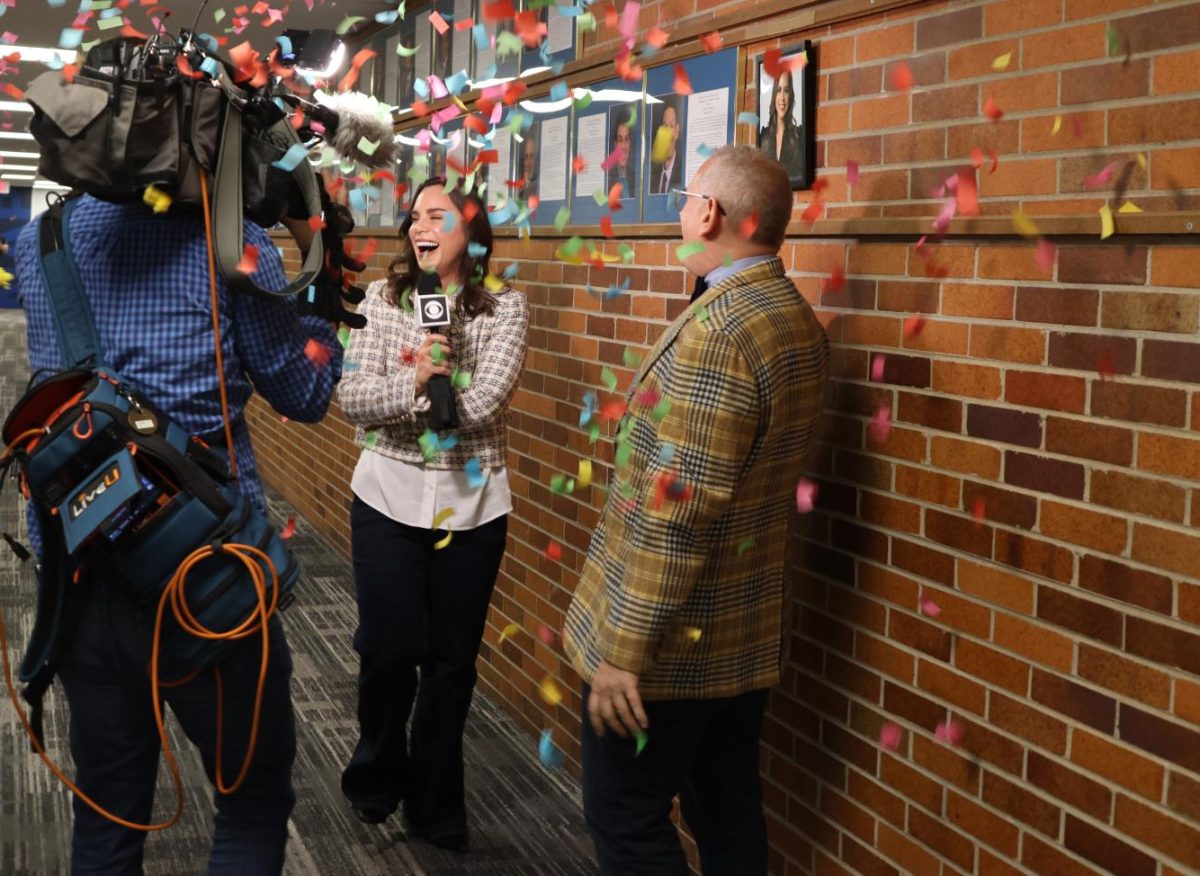Changes to South’s Search and Seizure policy, which has been in place since 2014, were approved by the D225 Board of Education, Principal Dr. Barbara Georges said. All Board of Education policies are required by law to be reviewed regularly, so the changes were part of a routine review, she added.
The board added a section allowing, during an investigation of improper behavior, school officials to request that students share the reported content from social media, Georges said. Other changes focus on revising outdated language, such as removing references to MP3 players, she added. Regardless of the new language, searches are rare, Georges said.
“The deans only use the ability to search or seize items from a student if they are a risk to [the] security of the school or if the item is illegal,” Georges said.
Every search follows a specific procedure, Ronald Bean, Assistant Principal and Dean of Students, explained. During a search, a student is brought into one of the dean’s offices, and behind closed doors, the student is asked if they have anything they should not, he said. If they do, they are asked to take the item out of their bag or their belongings are searched respectfully, he said.
“We try to be sensitive in terms of [making] an uncomfortable situation as comfortable as we can,” Bean said.
In addition to proper procedure, the policy details what items can be searched, Bean stated. Regardless of whether a student provides consent, anything on school grounds can be inspected if there is reasonable suspicion that a student may be in possession of an illegal substance or weapon, Bean said.
“If we have information that leads us to believe a student potentially has something in their bag, on their person, [in] a locker, [or] even in their car on campus, we have the right to search those things,” Bean said.
While the recent changes simply update the policy’s wording, they also raise the question of how policies like these might affect students. While senior Elena Yo feels positively about the policy and its recent amendments, she asks that South officials put their focus on a different issue.
“I like that they’re taking steps to make the school safer,” Yo said. “[However], while updating policies [are] important, the overall mental health of the student body is essential.”
On the other hand, senior Ezo Tuvshintulga believes the updates will lead to a better environment for the school.
“If a student were to make a post that indicates that someone else or themselves are endangered, I think the school is correct to use the [updated policy],” Tuvshintulga said.








